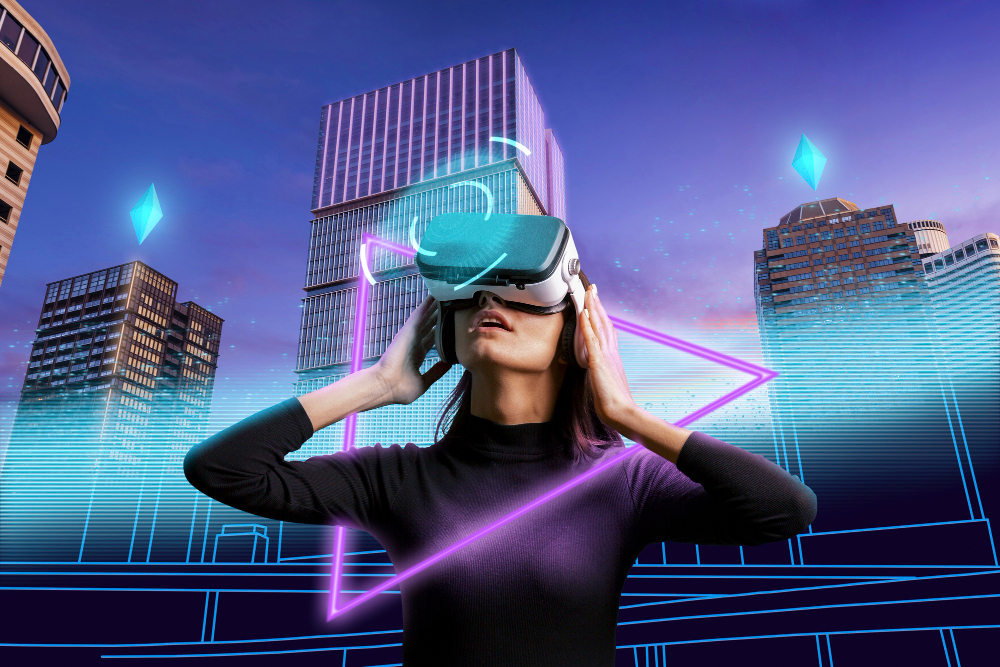The real estate industry has undergone significant changes in recent years, with technology playing a key role in transforming the way properties are bought, sold, and rented. The emergence of metaverse real estate technology is set to take this transformation to a new level, as it allows investors and developers to create and trade virtual properties in the metaverse.
What is Metaverse Real Estate Development?
Metaverse real estate development is the process of creating virtual properties within the metaverse. These properties can include everything from simple virtual storefronts to entire virtual cities. Metaverse real estate development Company can use tools like Unity, Unreal Engine, or Roblox Studio to create 3D models of buildings and landscapes, then upload them to virtual marketplaces like Decentraland, Somnium Space, or The Sandbox.
Once a property is uploaded to a marketplace, users can purchase it using cryptocurrency or other digital assets. These properties can then be customized, leased, or sold to other users, creating a virtual real estate market. Some developers have even gone so far as to create virtual worlds with their economies, where users can earn a living by creating and selling virtual goods and services.
What is Metaverse Real Estate?
The metaverse is a virtual world where users can interact with each other in real time and explore virtual spaces. Metaverse real estate is the concept of buying, selling, and renting virtual properties within this virtual world. These virtual properties can take many forms, including virtual land, buildings, and even entire cities.
How Does Metaverse Real Estate Work?
Metaverse real estate works by using blockchain technology to create and trade virtual properties within the metaverse. Users can buy and sell virtual properties using cryptocurrency, and ownership is recorded on a public ledger. Virtual properties can be customized and developed, creating new opportunities for investors and developers.
Benefits of Metaverse Real Estate
1. Lower transaction costs
Transactions within the metaverse can be conducted with minimal fees, as there are no middlemen involved.
2. Increased liquidity
Virtual properties can be bought and sold quickly, allowing investors to easily exit their positions.
3. Customization
Virtual properties can be customized and developed, creating new opportunities for investors and developers.
4. Global access
Metaverse real estate is accessible to anyone with an internet connection, creating a global marketplace.
Challenges of Metaverse Real Estate
Regulatory hurdles
The regulatory framework for metaverse real estate is still developing, which could pose challenges for investors and developers.
Security risks
The use of blockchain technology presents security risks, as virtual properties can be vulnerable to hacking and cyber-attacks.
Lack of standardization
There is currently no standard for virtual property ownership, which could lead to disputes and legal challenges.
Impact on the Real Estate Industry
Metaverse real estate technology is set to have a significant impact on the real estate industry. It has the potential to create new revenue streams for developers and brokers, while also providing investors with new opportunities for portfolio diversification. It could also create new challenges for traditional real estate, as investors may shift their focus to virtual properties within the metaverse.
Future of Metaverse Real Estate
The future of metaverse real estate is uncertain, but the technology is rapidly advancing. As blockchain technology and virtual reality continue to improve, metaverse real estate could become a mainstream investment option. Regulatory challenges and security risks could slow down its adoption.
Conclusion
Metaverse real estate technology has the potential to revolutionize the real estate industry, offering investors, developers, and brokers new opportunities for growth and diversification. there are also challenges and risks associated with this technology that need to be addressed. As the regulatory framework for metaverse real estate develops, it will be interesting to see how this technology evolves and impacts the industry.
FAQs About Metaverse Real Estate Technology
The metaverse is a virtual world that allows users to interact with each other in real-time and explore virtual spaces.
Metaverse real estate is the concept of buying, selling, and renting virtual properties within the metaverse, while traditional real estate involves physical properties.
Regulatory hurdles, security risks, and lack of standardization are some of the potential challenges facing the adoption of metaverse real estate.
It is unlikely that metaverse real estate will replace traditional real estate, but it could create new challenges and opportunities for the industry.
Investing in metaverse real estate can be done through cryptocurrency exchanges and metaverse marketplaces. It is important to do thorough research and understand the risks associated with this investment option.
































































